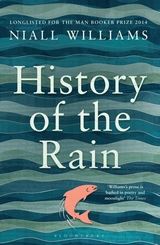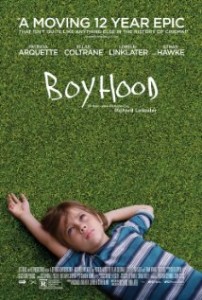I have no intention of writing regular reviews on this blog, unless of course they’re local to West Cornwall. Having said that I have seen two brilliant films and read two brilliant books this year so far, and I wanted to share them with you all. For want of an order I’ll go chronologically. History of the rain. Niall Williams. I read my first Niall Williams many years ago. It was Four Letters of Love, and I found it beautifully moving. I bought it because the pretty girl in the book shop was reading it. Shallow? Maybe, but I’m so glad I did. Williams writes of love. Love that makes you ache for the characters, their mistakes, their worries. History of the rain is no exception, although the love is for letters, for a father, a family. It’s small town Irish life portrayed with intensity and beauty. Claustrophobic, the narrator, Ruth Swain, becomes increasingly confined to her attic room where her companions are the nearly 4,000 books of her poet father’s library. Her music the rain on the sky light. Ruth loves a capital letter, and Declares Everything Important with an upper case that grates at first, until you find her voice in your head. As someone used to writing for business, I urge people to write in short sentences, after all it takes real skill to hold a long sentence together. Niall Williams has no problem writing a long sentence, and ones that no one with heart would dare edit. The last sentence of the book is 650 or so words long. I’ve read it again and again, with tears streaming down my face. It’s not for everyone. But those who enjoy it will carry it in their hearts long after they have finished the book. I’ll leave it in New Forge for you to try.
The Theory of Everything. There are so many arguments against this film, why acting the part of someone so utterly disabled as Stephen Hawking is wrong. But surely that misses the point. This beautiful film had me crying just watching the trailer (do you notice a theme of tears here? There’s more to come too). It’s not a tale of motor neurone disease, it’s a tale of love, obsession, dedication, tremendous intelligence, tempered by a fantastic whit. It’s long. It doesn’t tug at the heart strings, it absolutely yanks at them. Yet at the same time it’s often funny, very funny. It’s humbling, but just when you’re feeling that your own life has been pretty empty Eddie Redmayne delivers a line that we can all live up to. I won’t quote it because I found it moving, but it’s when Stephen and Jayne have just been to see the queen. I think it is a wonderful film, and after all, Hawking loved it himself.
Boyhood. I went to this with no idea what it was about, other than that it had been made over a long period with the same main characters throughout. I love that concept, the bravery of it – after all, so much could go wrong. Watch it with the wrong frame of mind and you might just get bored, fall asleep (although you couldn’t fall asleep in the Printworks, Manchester, too bloody cold), and certainly wonder what the fuss is about. It’s worth seeing just to see Ethan Hawke grow up before your eyes, let alone Ellar Coltrane, the main character. Oh, and Hawke’s great car, which maturity finally sees him leave behind. If you take just one thing from this film it’s that age old message that life is short – but there’s enough time in it for us to absorb brave and beautiful work like this. Again it’s long.
Colourless Tsukuru Tazaki and his years of pilgrimage: Haruki Murakami. As I’m a massive Murakami fan you can expect this to be rather biased. This, his longest titled novel, is probably his most accessible and normal. No one sticks their hand through a liquid wall to conveniently grasp something from the other room. There are no talking cats. Or cults that are away with the imagination even for the Japanese. After his last three part novel, delivered interestingly across two volumes, and mind benignly difficult to follow at times, this comes as a welcome breeze. For me it was an easy full day read that would have otherwise been miserable, suffering as I was from toothache. Yet still he challenges us. He refuses to give us the ending we desire. Or even answer so many of our questions. It’s part of the joy. What keeps us coming back. As ever his characters are beautiful. He has his trademark interests. An intimate knowledge of food, music, classical this time rather than jazz, and picture perfect detail on fashion. Murakami’s world is my sole insight on Japan – and it leaves me wanting to know a whole lot more.







